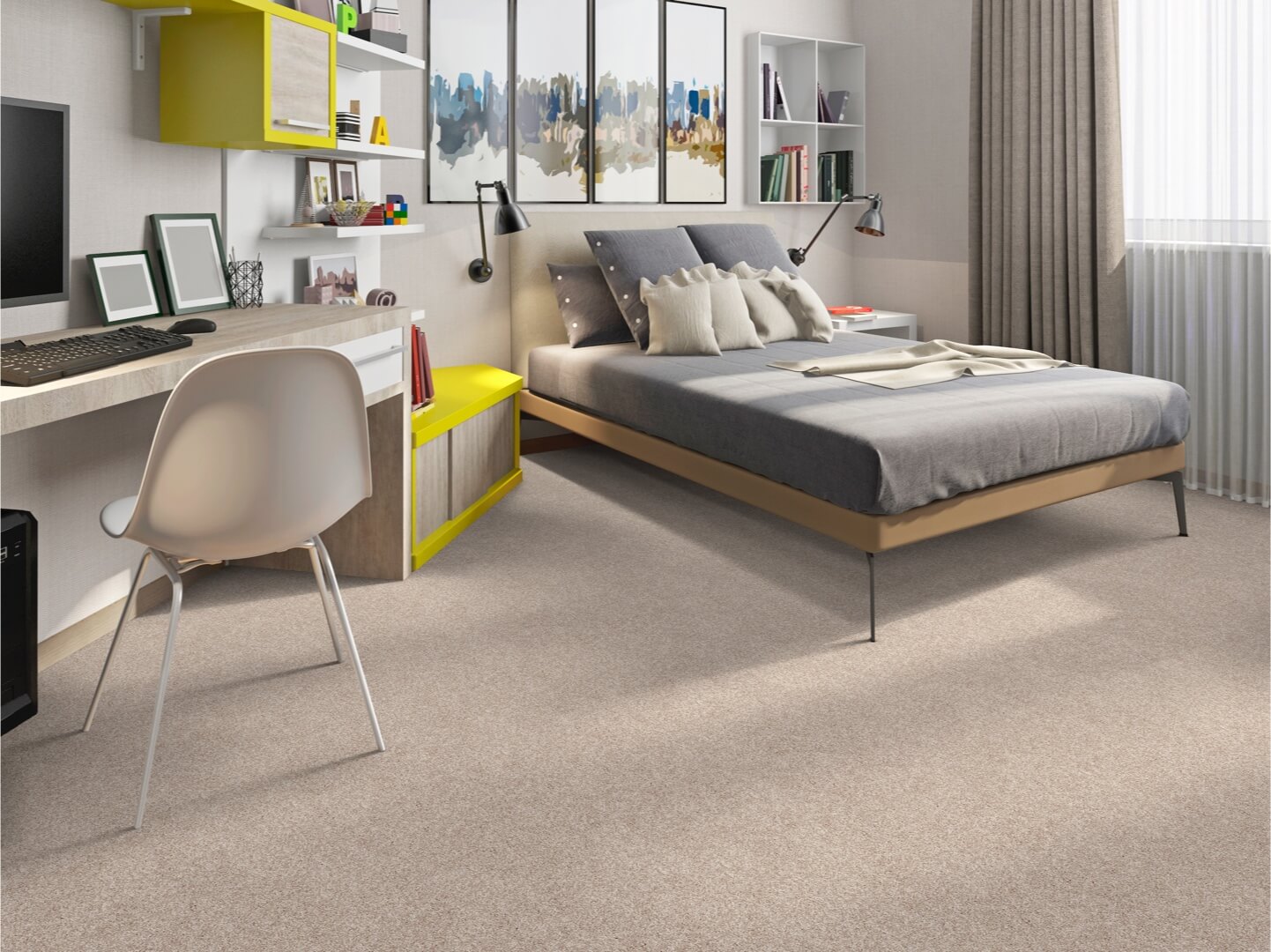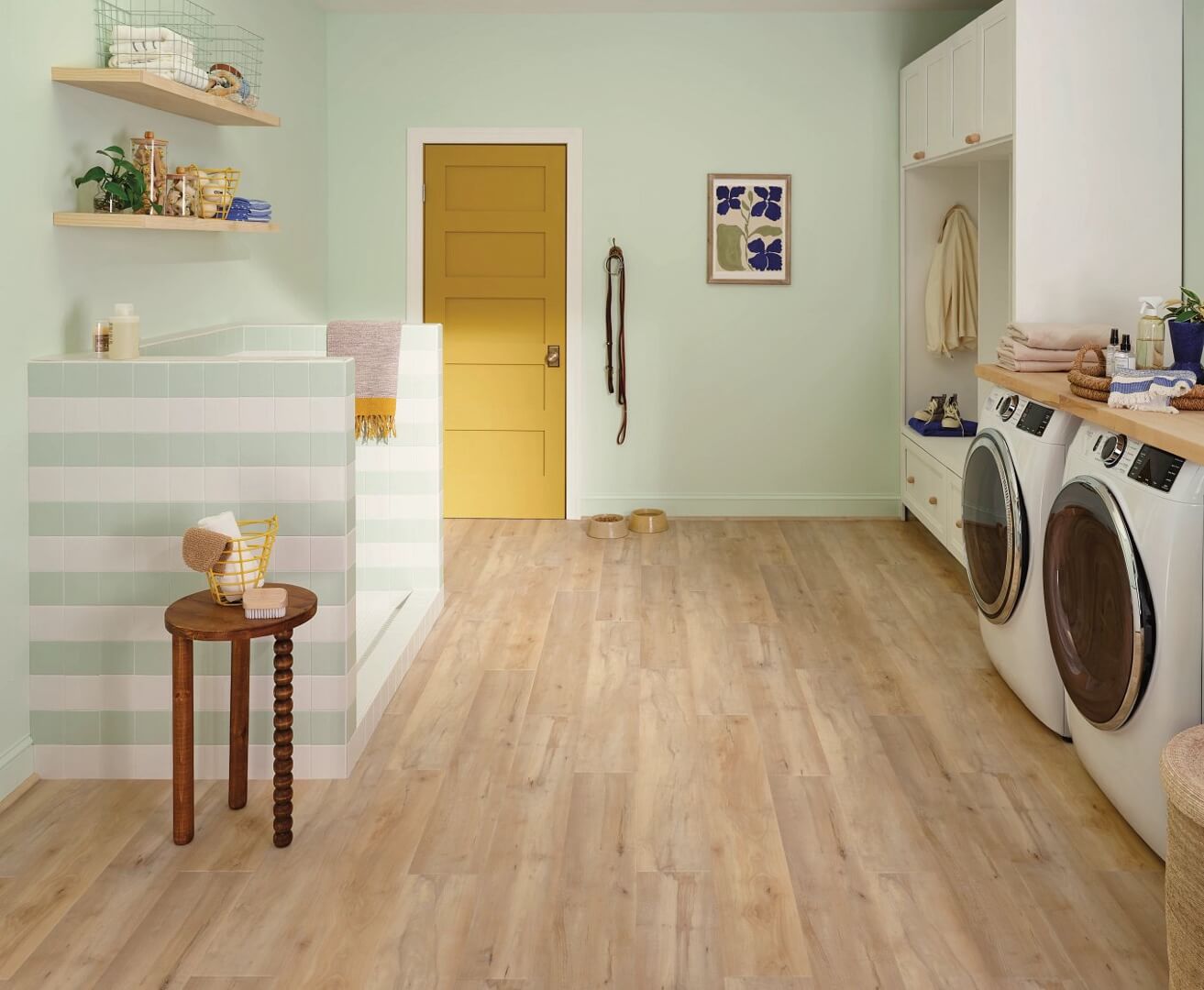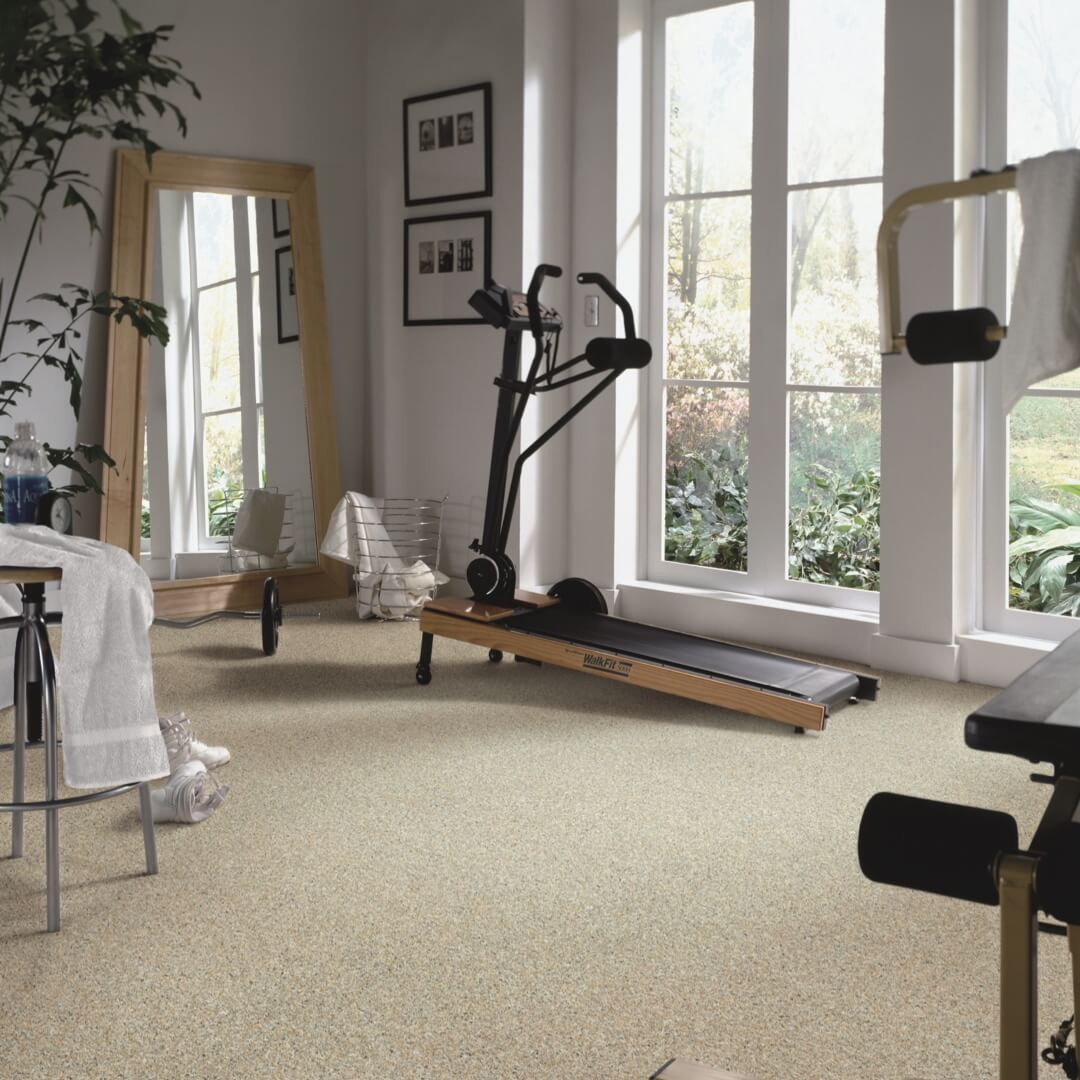Flooring for Rooms That Do It All
Your office might double as a guest room, or your living room often serves as your dining area. Your basement may be a family lounge and a home gym, while your upstairs is an open concept living area where cooking, dining, and relaxing all happen.
Today’s homes are designed for flexibility, and that means many rooms serve more than one purpose.

Flooring sets the tone for any room, but in a multi-purpose space, it needs to do even more. The right flooring should be durable, comfortable, and adaptable—able to handle everything from everyday traffic to spontaneous activities, all while maintaining its appearance.
Key Considerations When Choosing Flooring for Multi-Purpose Rooms
Finding the right flooring for a multi-functional space means thinking beyond style. While personal taste matters, you’ll also want to consider performance, comfort, and upkeep, especially in rooms that serve a variety of needs.
Room Usage
Start by identifying how the space will be used. A guest room/home office combo might call for soft, quiet flooring that adds comfort underfoot, while a living/dining area or finished basement might require durable materials that stand up to foot traffic, furniture movement, and the occasional spill.
Understanding the day-to-day activities in the room helps you choose flooring that supports all its functions.
Moisture Resistance
Some multi-purpose rooms are more prone to moisture than others. Finished basements can be humid. Entryways, laundry rooms, and play areas may face frequent spills. Choosing waterproof or highly water-resistant flooring helps prevent warping, staining, or mildew while keeping your floors looking good and performing well over time.
Comfort and Acoustics
Comfort matters, especially in rooms where you’ll be standing, exercising, or playing on the floor. Softer surfaces like carpet or resilient vinyl provide more cushioning, while area rugs can enhance comfort on harder floors.
Also think about sound. Open-concept layouts and high ceilings can amplify noise, so flooring that absorbs sound—like carpet or hard surfaces with underlayments—can help create a quieter, more pleasant environment.
Maintenance and Cleaning
In a high-use space, low-maintenance flooring is a smart choice. Materials that are easy to clean—like luxury vinyl, laminate, or tile—make it easier to keep up with life’s messes. If you’re juggling work, meals, guests, or playtime in one space, choosing a floor that’s quick to clean will save you time and stress.
Aesthetics and Design Integration
Function is important, but your flooring should also enhance the look and feel of your home. Multi-purpose rooms benefit from flooring that complements your overall design and helps visually define areas for different uses. For example, using rugs or mixing materials can help signal where the “living” area ends and the “working” space begins—without the need for walls or dividers.

Which Flooring is Best for Versatile Rooms
Several flooring types work well in multi-purpose spaces, each offering a unique balance of durability, comfort, and design appeal. The best choice depends on how the room is used, the look you want, and the performance features that matter most to you.
Your final decision will likely come down to which option aligns best with the key considerations covered above, like moisture resistance, ease of cleaning, and how the flooring feels underfoot.
Luxury Vinyl Flooring
Luxury vinyl flooring is one of the most flexible choices for multi-purpose rooms. It’s available in both plank (LVP) and tile (LVT) formats and can mimic the look of hardwood, stone, or tile while offering better resilience and easier maintenance.
This material is highly water-resistant—often fully waterproof—making it ideal for basements, kitchens, mudrooms, or combined living and dining areas. It handles foot traffic, furniture movement, and spills with ease.
- Pros: Waterproof options available, scratch-resistant, budget-friendly, comfortable underfoot
- Cons: May require floor prep for a smooth installation, not as soft or sound-absorbing as carpet
Laminate
Laminate flooring provides the appearance of wood with a durable, wear-resistant surface. It’s a smart option for spaces that need both style and strength, like a guest room/home office, upstairs den, or multi-use hallway.
Many modern laminate floors include water-resistant or waterproof features, though it’s important to confirm the specs before installation. Some products perform better than others in damp environments.
- Pros: Affordable, stylish wood-look, scratch-resistant
- Cons: Can be noisy without underlayment, limited moisture resistance in older or lower-end products
Carpet
For rooms where comfort and warmth are top priorities, carpet can be a great choice. It adds softness, helps reduce noise, and creates a cozy atmosphere, especially in areas like guest bedrooms, family rooms, or play areas.
It’s less suited for high-moisture or food-heavy zones but works well in quieter spaces that benefit from a softer surface.
- Pros: Comfortable, quiet, insulating
- Cons: More prone to staining, requires regular vacuuming and occasional deep cleaning, not ideal for moisture-prone areas
Tile
Tile is a top pick for durability and water resistance. It’s ideal for areas like basements, kitchens, entryways, or workout spaces where spills, sweat, or moisture might be common. Porcelain and ceramic tiles both offer long-term performance with low maintenance needs.
Tile also works well with radiant heating systems and can help keep spaces cooler in warmer months.
- Pros: Extremely durable, water-resistant, low maintenance
- Cons: Hard and cold underfoot, louder in echo-prone rooms, grout may need periodic sealing
Engineered Hardwood
If you want the natural look of hardwood in a flexible space, engineered wood is a more stable option than solid hardwood. It handles temperature and humidity fluctuations better, making it suitable for areas like dining rooms, finished basements, or home offices.
While it’s not waterproof, it does offer improved dimensional stability compared to solid wood and can often be installed over concrete.
- Pros: Natural wood aesthetic, more stable than solid hardwood
- Cons: Not waterproof, may scratch, generally higher cost than laminate or vinyl

Making the Right Choice for Your Home
Multi-purpose spaces bring flexibility and function to your home, but they also require thoughtful flooring choices that can keep up with everything you do. By focusing on how the room is used and what features matter most to your lifestyle, you can find a flooring option that’s both practical and stylish.
At Gilman Floors, LLC, we help homeowners in Hilton Head Island, SC choose flooring that fits their space, their style, and their everyday life. Whether you’re upgrading a basement, refreshing an open concept living area, or finishing a home office that doubles as a guest room, we’re here to guide you through the best options for your home.
Stop by our showroom or schedule a consultation. We’re ready to help you make the right choice for your multi-functional space.
